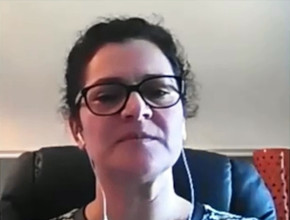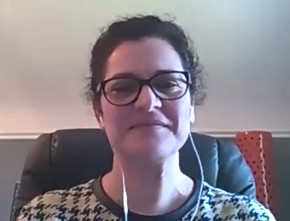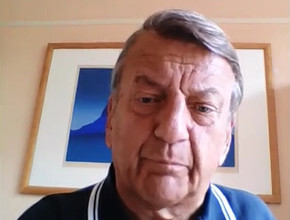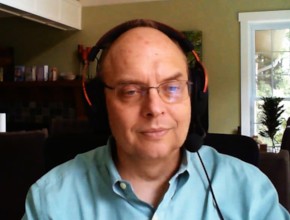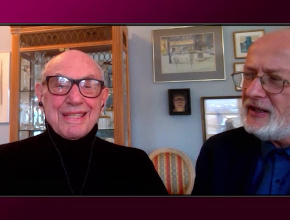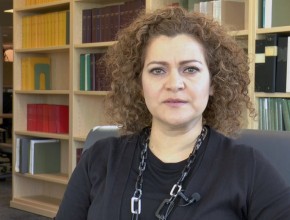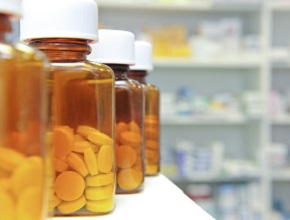Dr Zainab Samaan, associate professor in the Department of Psychiatry and Behavioral Neurosciences at McMaster University, talks to Dr Roman Jaeschke about distinctive features of depression and available treatments.
Roman Jaeschke, MD, MSc: Good afternoon. Welcome to another edition of McMaster Perspective. This is an interview with Dr Zena Samaan, a psychiatrist.
This a special interview because it’s the first in a while not directly connected with coronavirus disease 2019 (COVID-19). Indirectly it still is, because the impetus to this interview was the delivery of psychiatric care in the era of COVID-19 through computer-related modes of communication with patients. That was the original signal.
Dr Samaan is also the senior author of the depression chapter in the McMaster Textbook of Internal Medicine.
Welcome to McMaster Perspective. Maybe I will start with more general questions. After all, it is a COVID-19 time and I see a lot of lowered mood among my colleagues and coworkers. How should we distinguish between a regular, normal, fluctuating mood and depression we should be concerned about?
Zainab Samaan, MSc, PhD: It’s a very good question, Dr Jaeschke. Thank you for inviting me. As human beings, we all have depressed mood or low mood given the circumstances: external stressors or pressure. Sometimes when we have a direct correlation between an event happening and lower mood, we don’t normally call this depression—we call it an adjustment reaction or an adjustment disorder, because we have a direct cause and effect. However, most of the time the depressed mood lasts longer than the event itself. In this case with COVID-19, we are still in the midst of the pandemic and this has not been changed.
Depression is usually not just having depressed mood. Depressed mood is only 1 out of 9 other features. We normally diagnose depression based on the Diagnostic and Statistical Manual of Mental Disorders, Fifth Version (DSM-5). To have a depressive episode someone must have low mood or loss of interest and enjoyment associated with 4 other features. Those 4 other features could be cognitive difficulties, inefficient thinking, changes in weight or appetite, changes in energy, or changes in sleep, and all these things have to happen at the same time for a minimum of 2 weeks. They also must have an impact on functioning and cause distress. People sometimes feel like, “My mood is lower, this has been very stressful, [it’s an] uncertain time, I’m not feeling too good,” but they continue to work, their sleep is not impacted, their appetite is normal, they enjoy doing some other activities. It’s not really considered depression. Depression has to be a significant change in the ability to function and enough visible distress that will constitute a disorder, which is a change in the usual status for that person.
Roman Jaeschke: So there is some subjectivity to all this, as different people would probably have different thresholds. In your chapter you talk about mild, moderate, and severe depression. Once we are faced with it, what is today’s psychiatry able to offer? How effective are treatments?
Zainab Samaan: The treatment for depression depends on the severity, and you mentioned mild, moderate, and severe depression. If you decide this is a depressive episode, lasting at least 2 weeks, with all those features that we described, whether it is mild, moderate, or severe depends on the number of symptoms present—mild will have only 2 symptoms, moderate would be 3, and severe would be 4, 5, or more—and also on the level of impairment. Sometimes the level of impairment really determines the progression of the severity.
Depending on the severity and the context, we have to keep in mind depression can have high mortality with suicide, which is a major risk factor. We have to also consider the impact of depression on social functioning. For example, it might lead to disruption in work performance, in family obligations and responsibilities, or in relationships.
Depending on the severity, the treatment is usually a combination of approaches. No single approach is better than other. Usually psychotherapy plus pharmacotherapy and other social support will be the main 3 approaches to treat depression.
How effective are these things? There are several studies. Usually we look at randomized controlled trials as our golden standard and also on meta-analyses based on these trials to show us how effective these treatments are.
There is a lot of challenge in psychiatry when you try to figure out effectiveness. We also have the problem that a lot of the trials are focused on a smaller number of people, given that depression is very common, as you mentioned, and in the recent times there have been a lot of people suffering from symptoms of depression. The trials are mostly focusing on people with no comorbidities, have a short follow-up time, and also use measures of outcome that are based on something quantitative, which is easier to measure, like a scale of some kind [to measure a reduction of the symptoms].
Therefore, the effectiveness and efficacy are quite dependent on what type of studies were done, what type of population [was studied], and also how long people have been followed up. For example, if we look at comparative studies between psychotherapy and antidepressants, a lot of the studies have shown that they are as good as each other in reducing the symptoms of depression or achieving a remission, and these are 2 different outcomes. Reducing symptoms of depression means that the symptom count that we have and their severity is reduced but they are still there, while remission means that people are not clinically depressed anymore and they are becoming subthreshold based on the diagnostic criteria or the scales that we are using. For example, a good systematic review was done in the British Medical Journal (BMJ) in about 2015 with a comparison between psychotherapy—namely, cognitive behavioral therapy (CBT)—versus medications. The antidepressant medications they selected in that review were second-generation agents, so they were new antidepressants, not the older tricyclic ones. They found that both of them had the same equivalency when it comes to achieving remission as well as reduction in the severity of symptoms.
Roman Jaeschke: This brings up the question of whether they are better in terms of pharmacotherapy than placebo. Is psychotherapy better than leaving people alone?
Zainab Samaan: It’s a very good question, because placebo in mental health studies has a very high rate of response. Placebo in this context is not nothing. For example, in psychotherapy trials if you have someone who is connected with the researcher, or the team, even if they are not doing an active treatment, they are still getting something. The same thing is with pharmacological trials. So in general, even though the placebo effect is there, any intervention is better than a placebo and better than nothing. That’s the general consensus.
Roman Jaeschke: That’s a positive message. I think we will stop here, because I would really like to learn a little bit more about the choices of antidepressants and pharmacotherapy and definitely more about CBT. We’ll come back to it very shortly. Thank you for now.
Zainab Samaan: Thank you.
 English
English
 Español
Español
 українська
українська

